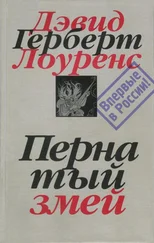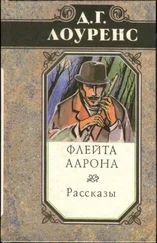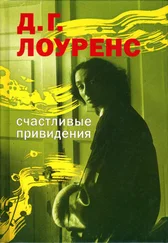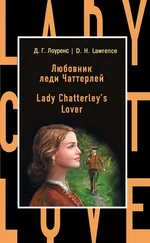Дэвид Лоуренс - Sons and Lovers
Здесь есть возможность читать онлайн «Дэвид Лоуренс - Sons and Lovers» весь текст электронной книги совершенно бесплатно (целиком полную версию без сокращений). В некоторых случаях можно слушать аудио, скачать через торрент в формате fb2 и присутствует краткое содержание. Жанр: Старинная литература, на английском языке. Описание произведения, (предисловие) а так же отзывы посетителей доступны на портале библиотеки ЛибКат.
- Название:Sons and Lovers
- Автор:
- Жанр:
- Год:неизвестен
- ISBN:нет данных
- Рейтинг книги:3 / 5. Голосов: 1
-
Избранное:Добавить в избранное
- Отзывы:
-
Ваша оценка:
- 60
- 1
- 2
- 3
- 4
- 5
Sons and Lovers: краткое содержание, описание и аннотация
Предлагаем к чтению аннотацию, описание, краткое содержание или предисловие (зависит от того, что написал сам автор книги «Sons and Lovers»). Если вы не нашли необходимую информацию о книге — напишите в комментариях, мы постараемся отыскать её.
Sons and Lovers — читать онлайн бесплатно полную книгу (весь текст) целиком
Ниже представлен текст книги, разбитый по страницам. Система сохранения места последней прочитанной страницы, позволяет с удобством читать онлайн бесплатно книгу «Sons and Lovers», без необходимости каждый раз заново искать на чём Вы остановились. Поставьте закладку, и сможете в любой момент перейти на страницу, на которой закончили чтение.
Интервал:
Закладка:
“Stop a minute,” he said, and, digging his heels sideways into the steep bank of red clay, he began nimbly to mount. He looked across at every tree-foot. At last he found what he wanted. Two beech-trees side by side on the hill held a little level on the upper face between their roots. It was littered with damp leaves, but it would do. The fishermen were perhaps sufficiently out of sight. He threw down his rainproof and waved to her to come.
She toiled to his side. Arriving there, she looked at him heavily, dumbly, and laid her head on his shoulder. He held her fast as he looked round. They were safe enough from all but the small, lonely cows over the river. He sunk his mouth on her throat, where he felt her heavy pulse beat under his lips. Everything was perfectly still. There was nothing in the afternoon but themselves.
When she arose, he, looking on the ground all the time, saw suddenly sprinkled on the black wet beech-roots many scarlet carnation petals, like splashed drops of blood; and red, small splashes fell from her bosom, streaming down her dress to her feet.
“Your flowers are smashed,” he said.
She looked at him heavily as she put back her hair. Suddenly he put his finger-tips on her cheek.
“Why dost look so heavy?” he reproached her.
She smiled sadly, as if she felt alone in herself. He caressed her cheek with his fingers, and kissed her.
“Nay!” he said. “Never thee bother!”
She gripped his fingers tight, and laughed shakily. Then she dropped her hand. He put the hair back from her brows, stroking her temples, kissing them lightly.
“But tha shouldna worrit!” he said softly, pleading.
“No, I don’t worry!” she laughed tenderly and resigned.
“Yea, tha does! Dunna thee worrit,” he implored, caressing.
“No!” she consoled him, kissing him.
They had a stiff climb to get to the top again. It took them a quarter of an hour. When he got on to the level grass, he threw off his cap, wiped the sweat from his forehead, and sighed.
“Now we’re back at the ordinary level,” he said.
She sat down, panting, on the tussocky grass. Her cheeks were flushed pink. He kissed her, and she gave way to joy.
“And now I’ll clean thy boots and make thee fit for respectable folk,” he said.
He kneeled at her feet, worked away with a stick and tufts of grass. She put her fingers in his hair, drew his head to her, and kissed it.
“What am I supposed to be doing,” he said, looking at her laughing ; “cleaning shoes or dibbling with love? Answer me that!”
“Just whichever I please,” she replied.
“I’m your boot-boy for the time being, and nothing else!” But they remained looking into each other’s eyes and laughing. Then they kissed with little nibbling kisses.
“T-t-t-t!” he went with his tongue, like his mother. “I tell you, nothing gets done when there’s a woman about.”
And he returned to his boot-cleaning, singing softly. She touched his thick hair, and he kissed her fingers. He worked away at her shoes. At last they were quite presentable.
“There you are, you see!” he said. “Aren’t I a great hand at restoring you to respectability? Stand up! There, you look as irreproachable as Britannia fiherself!”
He cleaned his own boots a little, washed his hands in a puddle, and sang. They went on into Clifton village. He was madly in love with her; every movement she made, every crease in her garments, sent a hot flash through him and seemed adorable.
The old lady at whose house they had tea was roused into gaiety by them.
“I could wish you’d had something of a better day,” she said, hovering round.
“Nay!” he laughed. “We’ve been saying how nice it is.”
The old lady looked at him curiously. There was a peculiar glow and charm about him. His eyes were dark and laughing. He rubbed his moustache with a glad movement.
“Have you been saying so !” she exclaimed, a light rousing in her old eyes.
“Truly!” he laughed.
“Then I’m sure the day’s good enough,” said the old lady.
She fussed about, and did not want to leave them.
“I don’t know whether you’d like some radishes as well,” she said to Clara; “but I’ve got some in the garden— and a cucumber.”
Clara flushed. She looked very handsome.
“I should like some radishes,” she answered.
And the old lady pottered off gleefully.
“If she knew!” said Clara quietly to him.
“Well, she doesn’t know; and it shows we’re nice in ourselves, at any rate. You look quite enough to satisfy an archangel, and I’m sure I feel harmless—so—if it makes you look nice, and makes folk happy when they have us, and makes us happy—why, we’re not cheating them out of much!”
They went on with the meal. When they were going away, the old lady came timidly with three tiny dahlias in full blow, neat as bees, and speckled scarlet and white. She stood before Clara, pleased with herself, saying:
“I don’t know whether—” and holding the flowers forward in her old hand.
“Oh, how pretty!” cried Clara, accepting the flowers.
“Shall she have them all?” asked Paul reproachfully of the old woman.
“Yes, she shall have them all,” she replied, beaming with joy. “You have got enough for your share.”
“Ah, but I shall ask her to give me one!” he teased.
“Then she does as she pleases,” said the old lady, smiling. And she bobbed a little curtsey of delight.
Clara was rather quiet and uncomfortable. As they walked along, he said:
“You don’t feel criminal, do you?”
She looked at him with startled grey eyes.
“Criminal!” she said. “No.”
“But you seem to feel you have done a wrong?”
“No,” she said. “I only think ‘If they knew!’ ”
“If they knew, they’d cease to understand. As it is, they do understand, and they like it. What do they matter? Here, with only the trees and me, you don’t feel not the least bit wrong, do you?”
He took her by the arm, held her facing him, holding her eyes with his. Something fretted him.
“Not sinners, are we?” he said, with an uneasy little frown.
“No,” she replied.
He kissed her, laughing.
“You like your little bit of guiltiness, I believe,” he said. “I believe Eve enjoyed it, when she went cowering out of Paradise.” 2
But there was a certain glow and quietness about her that made him glad. When he was alone in the railway-carriage, he found himself tumultuously happy, and the people exceedingly nice, and the night lovely, and everything good.
Mrs. Morel was sitting reading when he got home. Her health was not good now, and there had come that ivory pallor into her face which he never noticed, and which afterwards he never forgot. She did not mention her own ill-health to him. After all, she thought, it was not much.
“You are late!” she said, looking at him.
His eyes were shining; his face seemed to glow. He smiled to her.
“Yes; I’ve been down Clifton Grove with Clara.”
His mother looked at him again.
“But won’t people talk?” she said.
“Why? They know she’s a suffragette, and so on. And what if they do talk!”
“Of course, there may be nothing wrong in it,” said his mother.
“But you know what folks are, and if once she gets talked about—”
“Well, I can’t help it. Their jaw isn’t so almighty important, after all.”
“I think you ought to consider her .”
“So I do ! What can people say?—that we take a walk together. I believe you’re jealous.”
“You know I should be glad if she weren’t a married woman.”
“Well, my dear, she lives separate from her husband, and talks on platforms; so she’s already singled out from the sheep, and, as far as I can see, hasn’t much to lose. No; her life’s nothing to her, so what’s the worth of nothing? She goes with me—it becomes something. Then she must pay—we both must pay! Folk are so frightened of paying; they’d rather starve and die.”
Читать дальшеИнтервал:
Закладка:
Похожие книги на «Sons and Lovers»
Представляем Вашему вниманию похожие книги на «Sons and Lovers» списком для выбора. Мы отобрали схожую по названию и смыслу литературу в надежде предоставить читателям больше вариантов отыскать новые, интересные, ещё непрочитанные произведения.
Обсуждение, отзывы о книге «Sons and Lovers» и просто собственные мнения читателей. Оставьте ваши комментарии, напишите, что Вы думаете о произведении, его смысле или главных героях. Укажите что конкретно понравилось, а что нет, и почему Вы так считаете.









